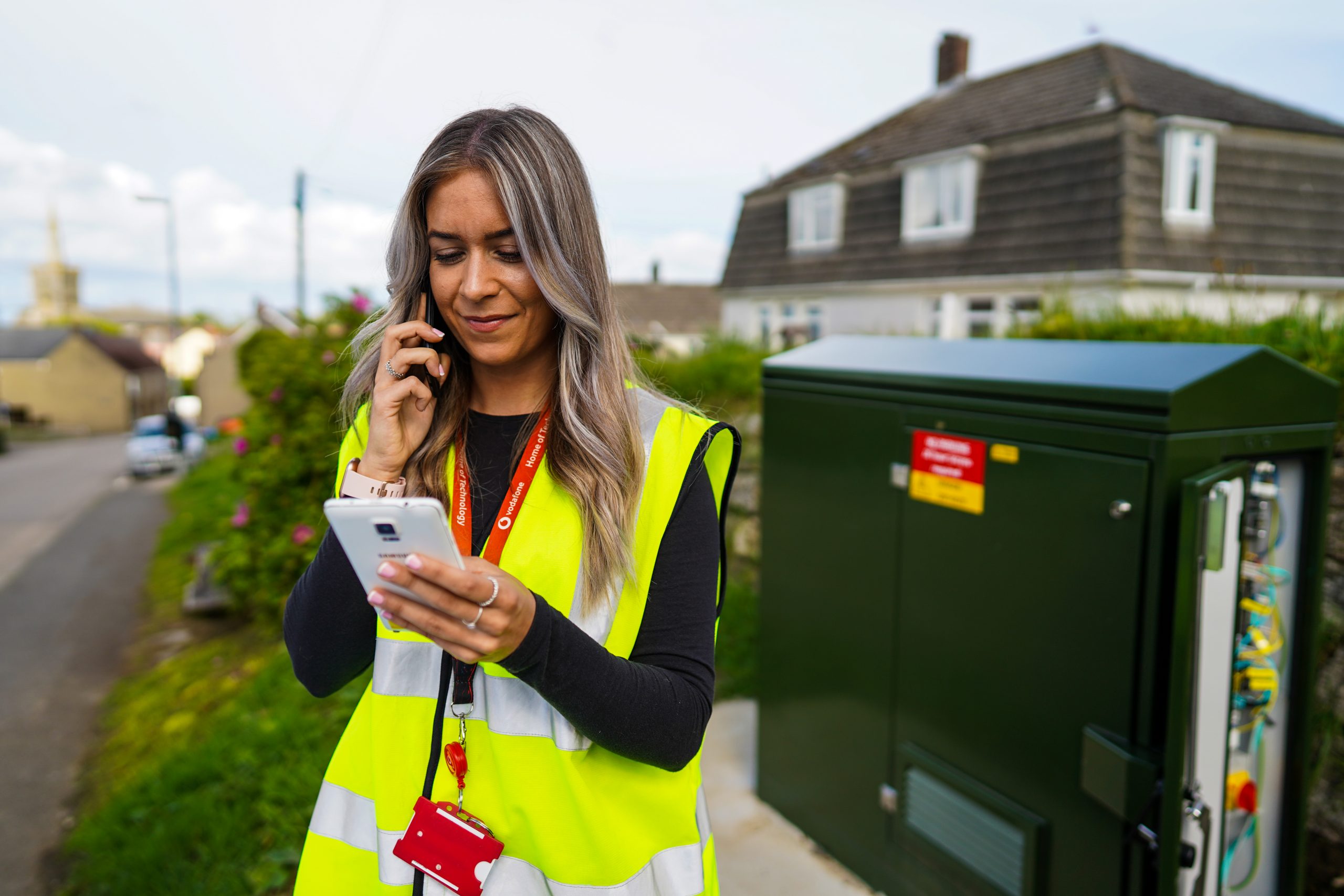It's time to ditch low-speed, high-priced hotel WiFi.
In late September 2019, we put our 5G network to the test by taking four journalists to sunny Madrid. We gave writers and video producers from T3, uSwitch, Verge Magazine and Btekt a Samsung Galaxy S10 5G, Samsung Galaxy Note 10+ 5G, and a plane ticket in a quest for blistering internet speeds while roaming. It proved to be a raving success, with download speeds reaching up to 700 megabits per second (Mbps).
Before heading off to our pre-planned locations, we stopped off in the city centre for a taste of Spain – potato croquettes, smoky albondigas and, of course (everyone’s favourite), bull’s tail. Whilst waiting for our food to arrive we were intrigued to see if 5G had joined us at the table, and it had. Instead of twiddling our thumbs, we used them for something more constructive – speed tests. Not only did we get 5G, we hit 580Mbps – a pretty solid start to the trip. To put it into perspective, that’s at least 10 times quicker than average 4G speeds.
Robert Jones, Ecommerce Editor at T3 said: “For me, personally, having the ability to download films in seconds, or stream top mobile games and 4K TV content effortlessly on the go, is cool.”
We visited half a dozen local tourist hotspots across Madrid. It was quickly apparent that Vodafone’s 5G coverage was spread right across the city:
- Plaza de las Cortes – 450Mbps
- Plaza de Callao – 670Mbps
- Puerta del Sol – 490Mbps
Even walking or catching a taxi between locations proved that 5G was pretty much everywhere in the city centre – much further that we had initially thought.

The most impressive part of the trip, agreed by all, was visiting Real Madrid’s world famous Santiago Bernabéu Stadium. Not only did their trophy room run the whole length of the pitch, the home changing room seemed larger than our entire hotel.
We managed to get 5G in the stadium – 420Mbps. At this speed, we were able to download Sergio Ramos’ new Amazon Prime exclusive El Corazon de Sergio Ramos – a documentary of his footballing career – in an impressive 10 seconds.

Back in the city centre, the group was able to experience Hatch – the cloud gaming platform built for 5G. With zero delay – or latency – turning tight corners in racing games was instantaneous. This could make the difference between winning a race or missing a corner and crashing.
David Wildman, video content producer at Btekt, used Hatch multiple times throughout the course of the trip and said that “cloud gaming has to be the best use case for 5G.”
The journalists even found time to upload work files to the cloud – achieved in a matter of seconds.
Andre Dixon, editor at Verge Magazine, announced: “I took my hand off the screen and the files were gone. Unreal.”
The appeal of such performance is obvious for frequent business travellers, who may be fed up with the lousy speeds of expensive hotel Wi-Fi.
T3’s Rob Jones said: “It used to be the case that just the mention of the word ‘roaming’ would immediately make you think about your wallet and if you would be hit with a massive bill once you got home.”
Fortunately, this is no longer the case, with Vodafone’s 5G costing the same as our 4G service.
Whether we’re at home, abroad or just out and about, we all want super-fast speeds so we can stream films, listen to music on the go, or even use augmented reality maps without those annoying buffering delays.
Vodafone UK launched 5G in July 2019 and is the first and only network to offer 5G roaming – at no extra cost. We currently offer 5G in 62 towns and cities across UK, Italy, Spain and Germany, meaning anyone on the UK’s best mobile network can, according to uSwitch, “access ultra-fast speeds in some of the biggest tourist destinations in Europe.”
Now that’s worth shouting about.




![Fan hand with mobile phone photographing football game[Adobe Stock] a stock photo of a sports fan's hand holding a mobile phone up to photograph a football game in a stadium [Adobe Stock]](https://www.vodafone.co.uk/newscentre/app/uploads/2024/08/Fan-hand-with-mobile-phone-photographing-football-gameAdobe-Stock.jpg)